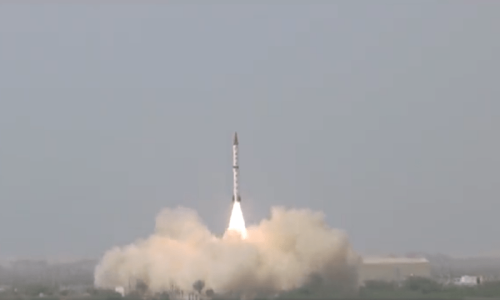IN recent times, there has been growing concern over the misuse of social media for orchestrating defamatory campaigns against the government, judiciary, military, and even journalists and private individuals. The state has responded with various legislative measures, such as the broadening of the Prevention of Electronic Crimes Act and, more recently, the defamation law passed by the Punjab Assembly.
There has been heated debate on the appropriateness and effectiveness of these actions, and even as they agree that something must be done to check the abuse of social media platforms, rights activists and journalists have correctly warned that any measures to check unlawful and destructive activity must be calibrated so that they are not used to restrict constitutional freedoms of speech and expression. No one denies the problem; the difference is in the approach proposed to be taken to address it.
One of the country’s most powerful forums recently issued a strongly worded statement on ‘digital terrorism’, highlighting the gravity with which it views deviant activities online. The forum’s concern over the abuse of social media is shared by all, including the media, but equating social media dissent with acts of terrorism seems to be problematic.
Pakistan has endured a long and painful struggle against militancy and terrorism, marked by the loss of thousands of lives. Conflating the genuine threat it poses — and which the nation continues to face — with the online actions of a few misguided individuals or miscreants seems to be taking the matter too far. Instead, the authorities would see better results in taking a more reflective approach. It seems crucial in this respect to acknowledge that the polarisation in our society is not solely a result of what is being said on social media. Neither can members of the ruling class, be they civilians or military officers, distance themselves from what is happening — they are a part of the same society as their critics.
The extreme emotions currently being expressed online seem to be a reflection of the deep social and political angst that has engulfed the country. Unless the root causes of this instability are addressed, ordinary people can be expected to continue to act in ways that are detrimental to both the state and society. That is why merely labelling critics as ‘digital terrorists’ and initiating a new crackdown seems unlikely to bear results; instead, it could even exacerbate the discontent.
What is needed, instead, is a broader, inclusive debate on how we as a nation can manage and mitigate the challenges posed by social media while respecting freedom of expression. Side by side, a softer, more empathetic approach is required to mend the rifts within society. It is only with patience and fortitude that this issue may be resolved.
Published in Dawn, June 1st, 2024















































Dear visitor, the comments section is undergoing an overhaul and will return soon.